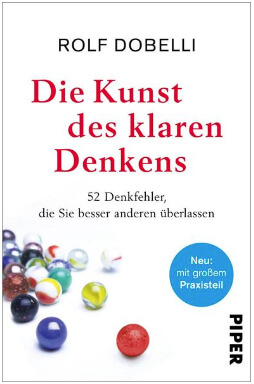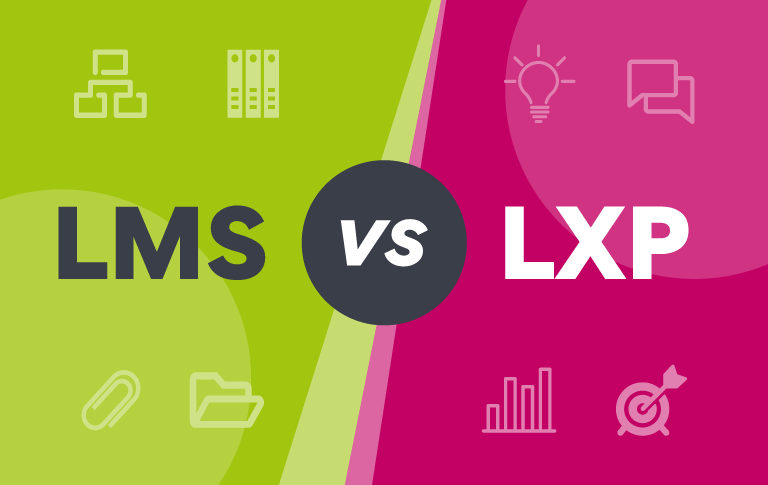Productivity, or achieving more in the same amount of time, can be a decisive factor in your professional success and personal happiness.
If you search for "increase productivity" or "productivity formula" on Google, you will quickly realize that many articles overlap and often offer tips such as "plan your day", "set priorities", "stop multitasking" or similar.
Some of these recommendations may work well. Others seem too abstract or unrealistic to me.
In this article, I would like to write down 40 habits or "hacks" for productivity that really shape my everyday life.
Thanks to these habits, I was able to found several successful companies. - A little less glamorous: I didn't take many of these habits seriously for a long time and wasted an incredible amount of time on them.
I will be delighted if one or two ideas help you to achieve 10 times more in the same amount of time
1. think first, then do. [Top tip for productivity]
It sounds obvious and is often neglected in everyday life:
First, think about how you can achieve what you want to achieve more quickly.
This is not easy: humans are creatures of habit. creature of habit - and must even have to be due to the complexity of their way of life.
Living and working methods are rarely questioned.
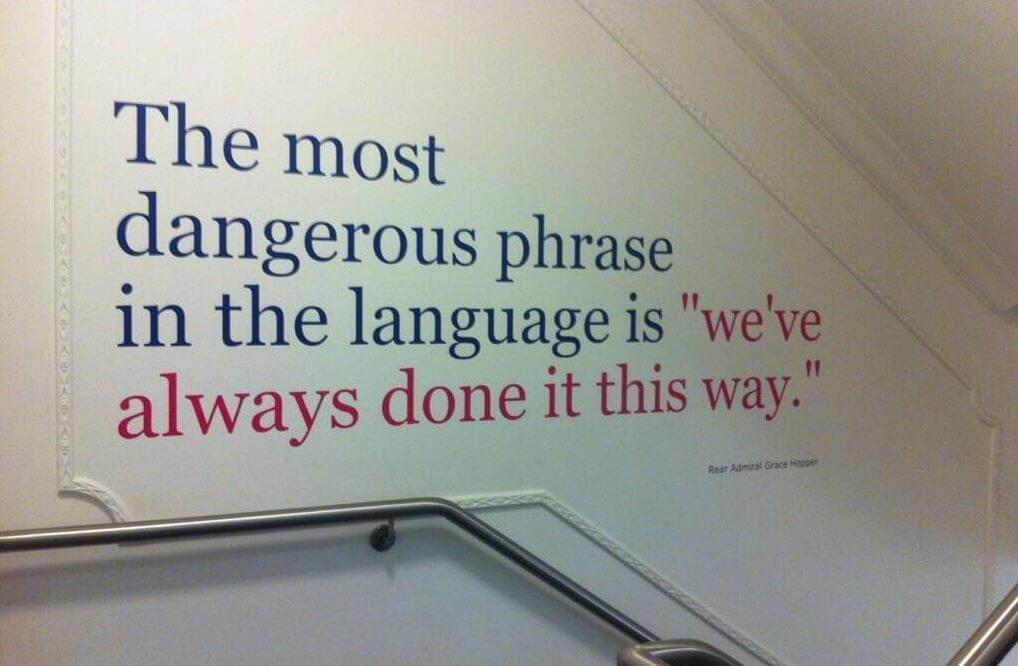
Sometimes it is not even habit that determines the difficulty, but social pressure or clinging to one's own, often overestimated status.
There are people who would rather not admit that their way of working is unproductive than change and live more successfully. Social pressure and status thinking offer a sure path to a lot of wasted time, unproductivity and dissatisfaction.
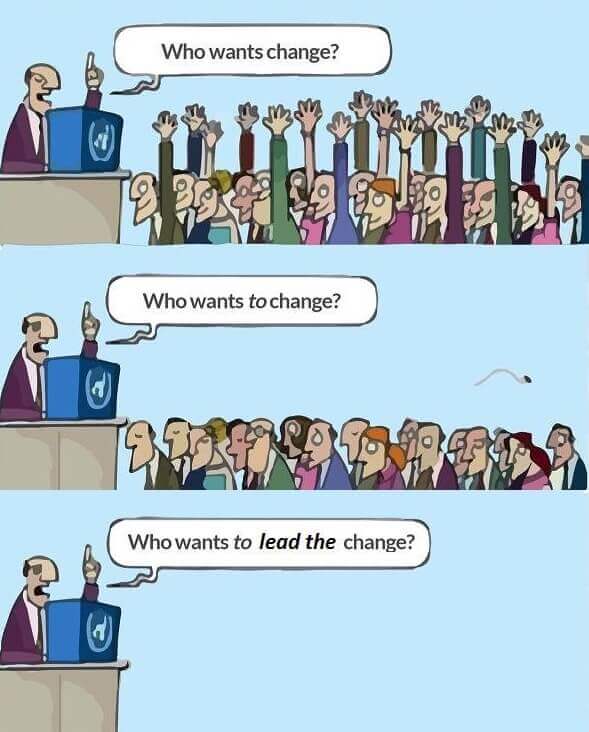
My recommendation:
Get into the habit of thinking imaginatively about how you can complete a task more quickly.
With imagination, you can come up with solutions that will increase your productivity many times over.
Examples from everyday working life:
Create Excel tables, write e-mails or design presentations.
Such tasks often take 10 times longer with the "just get on with it" method, taking all the consequences into account: an immense loss of productivity.
It is worth considering first what the end result could look like, which parts of the work are repetitive and how to reach the goal more quickly.
Excel and Google Sheets, for example, offer countless functions with which even complex analyses can be created extremely quickly. A quick search for spreadsheet formulas can save an enormous amount of time.
A well well thought-out storyline can speed up the detailed work on a presentation tenfold if you avoid having to rearrange everything later.
For simple tasks ean assignment to freelancers outsource can immediately shorten your work by hours or days. Find out more below.
Another example especially for team leaders or managers:
First carefully consider and test the consequences of your visions, goals or tasks and only then communicate them: This will save you a lot of time in clarifying misunderstandings later on or correcting the course of your employees.
This allows you to focus your most valuable resource, your employees, on the right thing. Your team becomes more productive.
2. answer the question why?
The "Why" was hyped a few years ago by Simon Sinek's TED Talk:
Sinek refers to the great ideas of companies or personalities that inspire others.
However, the "why" also works on a small scale.
Ask yourself what problem you want to solve through your work. The disappearance of the problem is the why of your work.
Important:
Don't be satisfied with the first idea that comes to mind as to what the problem might be. Take enough time to understand what solution is really needed.
A classic example:
You need to create a presentation for a customer about your company's offer.
The problem that you a little too hastily that you want to solve with this presentation: The customer doesn't have enough information about your offer.
Your a little too hasty Solution: Create a great glossy presentation that impresses graphically and perfectly summarizes all the products, services and added value of your company.
Thinking or talking to the customer about their goals would have shown this:
The customer is only interested in one part of your offer. He is not even interested in your skills, but in more money, more productivity, less time wasted, entertainment, progress or the like for himself.
Neither the customer nor his colleagues have the desire or time to study the extensive catalog of services offered by a self-absorbed service provider.
The problem only relates to one part, written more precisely: Consequence of your solution for the customer.
You can save yourself the time of preparing your full offer and make your customer happier!
3. urgency and importance: divide large tasks according to the Eisenhower principle.
This principle is commonly known as the Eisenhower Principlenamed after General and later U.S. President Dwight D. Eisenhower, who had to decide what was urgent or important or neither in the fight against Hitler's criminal regime for the good of the whole world during the Second World War.
If a task is neither urgent nor important, don't do it: you are blocking time for the important and urgent issues.
The Eisenhower principle needs to be put into perspective in real life:
What is urgent and important is often only decided by a feeling. The future is too uncertain. No decision is certain, otherwise it would be a conclusion.
Some prefer to leave big decisions to their superiors.
Many tasks are so small and short-lived that it's not even worth taking the time to think about their importance or urgency. It is better to simply complete such tasks immediately and forget about them.
The recommendation to prioritize tasks according to urgency and importance relates almost exclusively to larger projects that take several days, weeks, months or years.
But at least it is worth it in such cases:
This may save you days, weeks, months or years.
4. don't plan too far ahead: try to do small tasks exceptionally well.
The American actor and director Woody Allen once remarked:
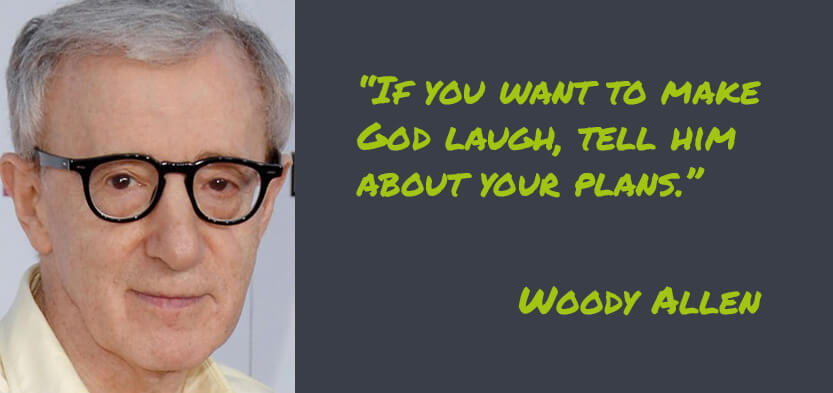
Because firstly, things turn out differently and secondly, things turn out differently than you think.
That is why most long-term plans have one thing in common: they are wrong.
Instead of investing a lot of time and energy in long-term planning, it is worth defining rather vague visions and keeping them flexible in order to focus on the execution and quality of small steps.
5 Learn as much as you can - for a lifetime.
What is the difference between an experienced software developer and a beginner who is just learning to program? The former is probably 1000 times faster when it comes to improving or writing new software.
The salesperson who has learned how to understand customer needs, how to present the value of their solution, how to handle objections and close deals, closes more customer orders than colleagues who don't know this; possibly 10-30 times more!
The marketing employee who knows how best to reach prospective customers or position her brand makes the difference between stagnating and dynamic, successful business development.
The managing director who has studied leadership skills and learned how to motivate employees to perform at their best achieves much more with her company than the competition, which is led by a narcissistic manager who is resistant to advice.
In short: knowledge accelerates your way of working in countless contexts.
Knowledge is acquired through learning.
If you want to increase your productivity in the long term, you need lifelong learning.
6 Managers: Establish a learning culture!
The latter point on personal learning as a measure to increase productivity is invaluable, especially for managers.
A recently shared, fictitious dialog between CEO and CFO is thought-provoking:
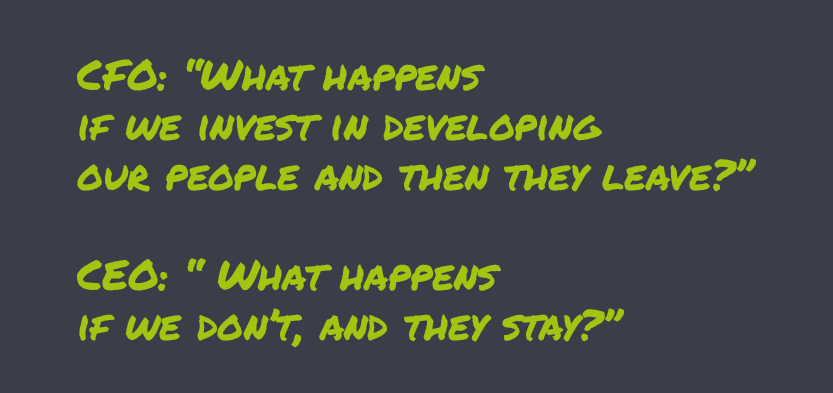
As a manager, it is definitely worth investing in further training for your employees in order to increase productivity.
Invest in learning contentthat inspires and develops your employees and at the same time increases your business success.
Invest in a good in-house learning platformto systematically train your employees, eliminate weaknesses or achieve faster and better results.
Important: Align your learning initiatives with your company or departmental goals.
On our own behalf:
Our mission at MaxBrain is to increase the business success of our customers via our learning platform. - For almost all of our industrial customers, the focus is on productivity: be it through sales training, product training or the further training of their own managers.
If you are interested in establishing a solid learning culture to sustainably increase the productivity of your employees, contact us and or sign up for a trial account with MaxBrain.
7. get into the habit of virtuous behavior.
This recommendation sounds somewhat archaic and is actually a little older.
Strictly speaking, this recommendation goes back to the philosopher Aristotle (384 BC to 322 BC), who founded an epoch-making philosophy, was a natural scientist and, among others Alexander the Great as a teacher and advisor.
Aristotle's ethics of virtue in one of his main works, the Nicomachean Ethics, referred to the question of how to be happy. happy could become happy. His answer: through virtue, i.e. good habits.
His teachings can be applied well to the factors surrounding productivity in a more modern context.
It is worth getting into the habit of good and productive behavior. Good behavior is characterized by being in the middle between unproductive extremes.
Specifically, it is worth cultivating the following habits:
Be neither stingy nor wasteful, but generous. - You will achieve more with other people and become more productive.
Be neither cowardly nor foolhardy, but courageous. - Courage pays off, especially in today's world, which offers so many possibilities and opportunities. Sometimes the biggest risk is not taking risks.
Be neither unfeeling nor unrestrained, but level-headed. - Prudence helps you to make better decisions and become more productive.
8. don't reinvent the wheel.
Don't keep reinventing the wheel:
Check whether someone else has already solved your task.
Ask your colleagues.
Or ask Google.
There is almost always someone who has already done something similar, offers templates or shares their experience and valuable tips. The only thing you need to be able to do is ask openly or search cleverly online.
9. use freelancers for simple but time-consuming tasks.
In everyday working life, there are many simple tasks that are very time-consuming.
This includes, for example, lead research in sales, image or video editing in marketing, creating or checking complex Excel tables, repetitive work in accounting and much more.
The tip for more productivity:
Use platforms such as Fiverr or Freelancer.com.
Here you will find thousands of low-cost freelancers who can do such work quickly and sometimes better than you can.
Look out for reviews and customer opinions about these freelancers.
Over time, build up a group of external employees who you know will work quickly, cost-effectively and competently.
You can delegate simple tasks that take 1-8 hours in 5 minutes.
You save 12-96 times your time and focus on the important and urgent tasks

For managers, the point about freelancers deserves an additional mention.
Managers are often unaware of how much time and money it costs to have employees carry out simple, time-consuming tasks.
A frequently seen example:
In one of my previous companies, I spent a month measuring how much time the sales employees invested in researching new leads. At the time, the sales team consisted of 39 employees at three locations in Germany and the USA.
The result: every single sales employee spent 2-3 hours a day researching their leads in various sectors!
With an 8-hour working day, that's around 25-35% of the time!
When you realize these crazy figures, you immediately notice the loss of productivity and profitability:
Productivity: Firstly, sales employees who research lead data themselves have 25-35% less time to concentrate on their core competence, customer acquisition.
Profitability: Secondly, the costs for lead research are completely exorbitant. The cost of lead research at 25-35% of my employees' working time meant that I was investing between 10 and 14 (!) full-time positions in Germany and the USA in lead research alone, and that in employees whose core competence was not in conducting internet research and data analysis!
Complete nonsense from an economic point of view!
Do you want to increase the productivity of your employees or save a lot of money?
Recruit a pool of inexpensive freelancers and delegate as many simple, time-consuming tasks as possible.
10. use only collaborative tools where possible.
The year is 2022.
Web-based cloud applications that enable collaborative work have been tested millions of times, meet high security standards and are intuitive for everyone to use.
My preferred tools of this type are Google Workspace, DocuSign or Figma for design and product management.
Nevertheless, I regularly receive locally stored Microsoft Word, PowerPoint or Excel files from companies, especially large companies.
The effort involved in sending updated versions back and forth by e-mail immediately reduces the productivity of everyone involved.
Productive companies work with as few locally stored files as possible and rely entirely on collaborative working.
11. work in a productive team.
The efficiency and competence of the people you work with are invaluable for your own productivity.
If a team is more dynamic than average and achieves in days what others need months for, this has a knock-on effect on your own productivity.
On the one hand, you learn more ways to achieve more in the same amount of time in such teams.
On the other hand, a dynamic, results-oriented team spirit is incredibly motivating and has a positive effect on your ambition.
12. share your goals with others.
You know it from your student days: The majority of seminar papers are written the night before the deadline. The pressure had to come from outside.
Social pressure works wonders for a social animal like humans:
Recognition and fear of personal criticism are among the strongest non-monetary motivators for most people.
Let others know how much you want to achieve in the shortest possible time.
They put themselves under pressure and want to avoid being ridiculed as loudmouths at all costs.
If you are interested in the opinions of others, there is hardly a stronger lever for your own productivity.
13. stay friendly: don't waste time on unnecessary conflicts and increase your productivity.
Being friendly and polite may sound like a matter of course, but it's not always easy in hectic everyday life and tense business situations.
Aside from personal style and ethics, kindness helps you be more productive.
Friendly people waste less time on pointless arguments, petty company politics and prefer to be supported by others.
Be friendly to your colleagues.
14 The cosmic view: Don't let minor operational crises stress you out.
In every company and in every workplace, there are moments when some seemingly terrible event happens:
A customer complaint, a dismissal, a nasty press report, a warning, an insulting remark, banal envy, harsh criticism or a competitor's lie - the list goes on and on.
These are often what I call "small operational crises".
These are crises that are always small and insignificant in retrospect, but feel deep and painful at the moment they unfold.
Common mistake: Taking your own person or the problem far too seriously.
The best remedy for this is what I call the "cosmic view".
The most radical manifestation of this cosmic view is to remember that you are just a small dot on a big planet; the planet is just a dot in the solar system; the solar system is just a dot in the Milky Way and the Milky Way remains just a dot in the universe. You have no reason to be upset about a dot.
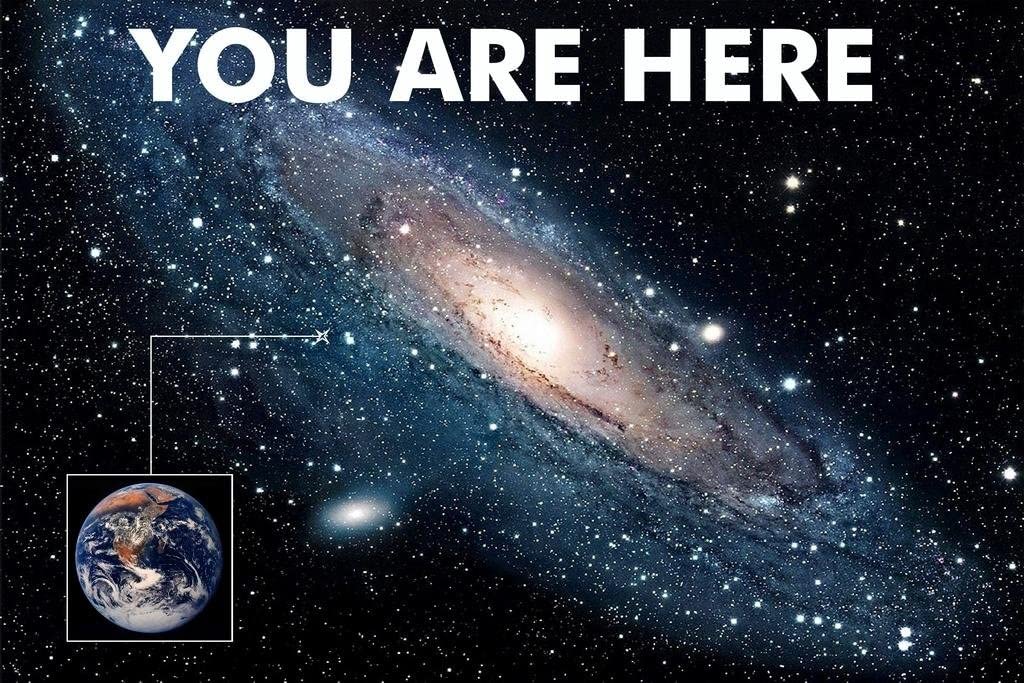
Of course, for psycho-hygienic reasons, you shouldn't and can't think that far ahead in everyday working life.
However, the mere reminder that life goes on and that minor operational crises are almost always short-lived helps you not to be intimidated by them, to carry on with your work and not to limit your productivity.
Don't take yourself and minor operational crises too seriously. Stay objective. Instead, focus on what needs to be done. The crisis will disappear and you will be more productive.
15. be inspired by great personalities.
I admit to being a Steve Jobs fanboy to be a Steve Jobs fanboy.
Despite knowing about his character and interpersonal weaknesses, during his lifetime I looked forward to each of his keynotes for days in advance and was enraptured by each of his presentations, interviews and stories.
Personalities who achieve great things have always been masters of productivity:
Thanks to their unconditional focus on the essentials, they can achieve much more in a short space of time than mere mortals.
Look for one or more of these inspiring figures and let them inspire you so much that they raise the standards of your own work.
This automatically speeds up your productivity.
Here's another video that every true Steve Jobs fanboy knows by heart:
16. ask others who are better at it for help.
Unless you're a genius - and statistically speaking, unfortunately, almost no one is - there's always someone out there who can do what you want to achieve better.
For many tasks, there are probably people in your own company who can help. Many people are surprisingly happy to help if you just ask them.
Jump over your own shadow: Ask others for help.
Forget your pride. (Otherwise, re-read the chapter above on the cosmic view).
This quickly increases your productivity.
17. guard your flow moments and complete small tasks immediately.
Occasionally, people get into what is called "flow". You are then so focused on the task at hand that any distraction immediately interferes and slows down progress.
These flow moments should protect you from any distractions: this time is too valuable and too productive.
If you are currently not in such a flow and you have small tasks to do - such as answering e-mails or briefly assisting a colleague: complete this small task immediately!
The reason:
If you complete the small tasks immediately, you no longer need to spend energy remembering them. You save energy that you can better use for your productivity.
18. meetings standing up
Meetings can be very useful, but they can eat up time, especially if some or all of the participants are not focused on the core topic of the meeting and there are employees for whom meetings are welcome breaks to doze off peacefully and unnoticed.
Admittedly, it is difficult to convince colleagues to attend a standing meeting.
If more meetings were held standing up, everyone would have more time.
Try it out occasionally.

19. breaks: Have a walk (in the forrest)!
The recommendation to take breaks from time to time or even plan ahead is not new. After all, this list is primarily intended to be useful and not just new.
It has been proven that it makes sense to rest a little from time to time in order to become even faster afterwards. You are not a machine.
My personal preference for breaks: going for a walk.
I'm not a doctor, but exercise is probably good for your circulation and calms your nerves a little.
It has been scientifically proven that forest bathing is healthy. If you have the luxury of being able to visit green spaces near your place of work, take advantage of this.
Take a colleague with you to discuss how the team could become more productive...

20. done is better than perfect
There are people who suffer from perfectionism because they are never finished with their tasks.
Perfectionism is often not required at all.
Whenever the effort required for subsequent corrections is less than the effort required to complete a task perfectly, perfectionism means a loss of productivity.
Focus on completing tasks excellently but within a reasonable time; not perfectly.
21 Working on productivity is energy management: pay attention to your sleep.
Tired people are less productive.
Take care of your sleep, even at times when you have a lot to do and complex challenges to think about.
Personally, I am one of those people who often do not follow this important recommendation because there is always so much to do and so much to learn. I regularly regret disregarding this recommendation.
You also write blog articles like this for yourself.
22. no more smartphones from 23:00!
Apps like Netflix, YouTube, Instagram and all news apps are probably the biggest productivity killers ever invented.
Instead of reading a book (more on this below) or going to sleep, we watch a series, YouTube shorts or an exciting movie, or read about the latest developments in political events over which we have no control and whose facts are usually distorted for the sensationalism of the masses.
Resist the temptation to sabotage your sleep and productivity with streaming hours or sensationalism.
23 Pay attention to your diet
This is another recommendation that I always have to remind myself of; tasty unhealthy food is too tempting.
"You are what you eat."
The saying is probably true, at least in part - even if I can't really identify with a salad, a steak or a cheese.
One specific meal that I pay particular attention to is lunch.
Their timing is relatively unfavorable in the first half of a normal working day.
Never eat anything that will make them tired for the afternoon. -
In my case, unfortunately, these are the pasta and breads of all kinds that I love so much and that I have to avoid if I want to achieve more in the afternoon.
A healthy diet, or at least a diet that doesn't make you tired, is incredibly important for your productivity.
24 Invest in templates for all kinds of tasks.
You may have noticed that some tasks, e-mails, presentations and letters are often repeated.
In cases of repetitive work, it is definitely worth creating very good, easy-to-copy templates and saving them in a notes app or similar so that they can be found quickly.
Instead of restarting again and again and spending 15-30 minutes writing an email that you have already sent 30 times with similar content, use your templates and write an email in 2 minutes: 7-15 times faster and more productive.
25 If there are too many open tasks: Make a list.
Having to remember costs energy and, at worst, leads to unnecessary stress.
If you are working on too many tasks at the same time, write down the list.
This saves you the energy and time of having to remember each one and frees you from the fear of forgetting one.
Over time, you will often find that one or two tasks are neither urgent nor important (see above). You can then cancel them completely and save a lot of time. - Your productivity increases again.
26 Organize your folders.
I am regularly asked by former colleagues or family members whether I still have this or that document from the distant past.
The reason is simple:
For years, I have maintained a very transparent, easy-to-find, logical folder structure on my computer and on Google Drive.
Regularly, about every 1-2 weeks, I tidy up the files on my computer desk and sort the files into well-named folders.
Finding an old file is just a matter of a few clicks for me.
Apart from the involuntary function of a private archivist for my environment, this organization helps me to work much better and more productively.
Invest in tidying up your computer and increase your productivity immediately.
27 Be disciplined when naming files.
If you name a file in the cloud or on your computer, make an effort to name it in such a way that you will immediately understand what the file is about many months or years from now.
One of my personal preferences is to start a file name with the year month and day. For example:
"2022 08 18 Presentation X for Y"
This has the advantage that I can tell from the file name when it was created.
This allows you to sort files directly by date based on their name and avoids having to search for the date column in a folder.
Whatever works best for you:
Name your files so that you save time when searching for them later.
28th Work in a cool place
Even if this recommendation sounds banal, it helps me personally a lot:
Heat can seriously sabotage your productivity.
Ventilate your room sometimes, find a cool place where you can work better and faster.
Check whether your building has air conditioning.
At MaxBrain we spent half of this very warm summer working in the heat, until one fine day our landlady walked in to show us how to turn on the (until then unknown to us) air conditioning...
29 Pay attention to Decision Fatigue: My clothing style.
The recommendation sounds strange and is unlikely to appeal to fashion-conscious people:
Always dress in the same style.
Those who know me know that I wear a timeless Lacoste T-shirt in navy blue almost every day, with white sneakers and jeans. A habit that I have hardly ever changed for about 15 years.
It sounds insignificant at first glance, but the big advantage of always wearing the same clothes is that I don't have to decide what to wear in the morning.
While other people are standing in front of their wardrobes, probably weighing up what will go down best with their colleagues today, I'm already at breakfast or out and about.
Aside from this greater time saving in the long term (≈ 5 minutes x 365 days x 20 years = 608 hours), this recommendation has a deeper background:
This will save you some "decision-making energy" every day.
This phenomenon, which has been scientifically investigated in psychology, is known in particular as "decision fatigue", which can be translated as "decision fatigue".
Decision fatigue: The more decisions you have to make, the more tired you get and the worse your decisions become.
It is advisable to make important decisions well rested and, if possible, in the morning.
If possible, avoid the situation of having to make unimportant decisions.
Apart from that, a navy-blue Lacoste T-Shirt looks good, despite the reservations of my colleagues and a few nagging family members! 🙂
30. read books
Books boost your own productivity much more than you think.
Good books help you to learn.
I have already written above about the importance of learning and learning cultures.
However, good books have other lucrative qualities:
Books help you to organize your thoughts better.
Those who think clearly are faster and more productive.
Books help you to learn to write.
Ask yourself: How important is it for your work that you write well and clearly?
For most positions writing well and with ease immediately means more productivity in the office. Be it because colleagues understand your emails or messages better or because you can convince your customers more effectively.
Books stimulate the imagination.
In contrast to Netflix, YouTube videos or TV shows, which relieve you of the effort of visual imagination, books challenge and encourage your imagination.
You can use your imagination to find quicker and easier ways of working.
Books are a blessing for your productivity.

31 Set yourself goals for the day.
Most productivity guides and blogs recommend planning a day. plan.
However, as outlined above, plans can quickly become time-consuming and are very quickly wrong because life and work offer too much unpredictability and the ways to complete a task are sometimes shrouded in fog.
Goals work better than plans:
"By (time) I want to get (this and this) done."
However, setting goals is not always that easy:
If goals are too weak, you often achieve less than you could.
If goals are too difficult, this can end in frustration or weaken the importance of your goals through less commitment.
Setting goals, especially on a daily basis, requires some experience, patience and - if you prefer the more ambitious options - a lot of hard work.
If you have no goals at all, it is questionable whether you can measure your productivity at all and whether your success will not be the product of chance.
Productivity is defined by the fact that a goal is achieved in a certain time.
Learn to set goals that are ambitious but achievable.
32. control possible distractions.
Some guides and blog articles recommend eliminating distractions altogether.
However, this is difficult in real life:
The world, acquaintances and work are too rich and colorful.
It is true that you can try to avoid some distractions:
My private office, for example, would be derided by some as a tragedy: White walls, no fridge, a desk with a view of a wall.
Even more effective, however, is the mindset that you focus on your goals, want to achieve them and get into a flow (see above).
The distractions remain, but you can control them thanks to this mindset and only fall for the temptation of the birthday cake at the other end of the office when you want to or need a break.
Those who master the unavoidable distractions of life and work well achieve completely new levels of productivity.
33 Listen to good music.
Music is the art of emotions.
Sad music makes you sad. Happy music makes you happy. Motivating music motivates.
A personal example:
A few months ago, when the embarrassing court case involving actor Johnny Depp and his ex-wife Amber Heard was omnipresent on social media, I was shown the orchestral version of a main theme from the Pirates of the Caribbean film series on YouTube:
This music only very marginally corresponds to my personal taste in music; after all, I am a child of the much more profound classical piano music and an admirer of timeless geniuses such as Bach, Mozart or Chopin.
Nevertheless, the Pirates of the Caribbean soundtrack, in combination with the memory of the character of Jack Sparrows had a motivating effect for a few days as a "catchy tune", which certainly made my work more productive.
Choose motivating music that encourages you to work more motivated and faster.
34 Write a fictitious press release before you implement an elaborate new idea.
This idea did not come from me, but from Jeff Bezos, the founder of Amazon.
Every time a product manager at Amazon comes up with an idea for a new feature or an elaborate new project, they ask for a fictitious press release about it.
Why a press release?
Because press releases have to explain to complete strangers in simple terms what you have achieved and why what you are doing is important and relevant.
If you are unable to formulate the idea for a new feature or complex project in simple, exciting words, you should reconsider whether and how it is worth implementing your idea.
Writing a fictitious press release is particularly worthwhile for larger projects that are expected to take a lot of time. It forces you to think about what the value of your idea really is.
Be tough on yourself:
If it turns out, thanks to a fictitious press release, that your idea is worthless or that there are others that are much more exciting and important, simply discard it!
Not wasting time on unimportant ideas is one of the very best ways to increase your productivity.
35 Reply to emails immediately or bundled at specific times.
Receiving and replying to emails is often seen as a productivity killer.
That doesn't have to be the case:
It depends on exactly when and how you reply to emails.
As mentioned above, you should not even be able to take note of emails if you are in a "flow" and are highly productive in solving a task.
However, a replied e-mail has advantages: you no longer have to think about it and the recipient is grateful if your e-mail provides a good answer or solves a problem.
That's why I personally tend to reply to emails more quickly, not to write, immediately. I save myself the energy of having to think about it and the other person is happy about the quick reply.
Interrupting flows for emails is only an option for me if the other person calls me to insist on the urgency of my reply. Otherwise, they remain unanswered as long as the flow continues.
Another tip:
Take the trouble to unsubscribe from unsolicited and useless newsletters from time to time. Pointless newsletters unnecessarily take away your attention and reduce your productivity.
36 Optimize your commute.
For a while, I commuted from Zurich to Munich every week:
Around 6 hours of driving per week - around 250 hours per year, during which my attention was focused solely on the asphalt of Swiss and German highways.
Ideally, your workplace should be just a few minutes away from your home: over the year, this will save you a lot of time, which you can use more sensibly and productively.
If you can't avoid hours of driving, make them more productive!
Make non-critical phone calls in the car that you have to do later in the office; only via the hands-free system, of course!
Or even better: listen to audiobooks that introduce you to new and exciting ideas that will motivate you and make you more productive.
Or: Switch to the train and develop a way of working on the train.
Be that as it may:
The commute to work offers plenty of opportunities to increase your own productivity.
37. avoid thinking errors: Sunk cost fallacy
People regularly make mistakes in their thinking.
If you would like to read or listen to these thinking errors in a condensed form, I recommend the Spiegel bestseller by Swiss author Rolf Dobelli, "The art of clear thinking: 52 thinking errors that are better left to others".
Errors in thinking can significantly affect your productivity.
The most famous example is the sunk cost fallacy.
Sunk costs are costs that you irrationally keep because you are holding on to something from the past that is not actually worthwhile for the future.
A crystal-clear example:
You have invested a lot of time in a marketing campaign, developed ideas, designed creatives, created landing pages and much more.
Unfortunately, this campaign did not perform as well as others. In fact, it is likely that any future investments, advertising budgets and time you invest will simply not be worth it.
In this case, it makes sense to stop the campaign immediately and waste no more money or time.
That may sound obvious to you.
And yet it's not always that easy, especially if you can't estimate exactly what the opportunity costs i.e. the cost of a missed alternative.
At MaxBrain, we occasionally encounter this problem with potential customers: they are stuck with an outdated system or an unproductive way of working.
An often-heard phrase in this context:
"We have already invested so much in our system that we don't want to change."
As soon as you hear this argument, you should immediately smell the sunk cost fallacy:
The past is invoked to justify future actions.
The opportunity to seize a better, more effective and lucrative opportunity is simply missed. The increased productivity that results from using a better learning platform is not even realized.
38. managers: Hire employees who work hard.
Some time ago there was a report that Daniel Schwartz, the CEO of Burger King, regularly asks candidates during job interviews whether they work hard or smart .
His preference is for candidates who answer "hard".
Of course, one could immediately argue that it is best to hire employees who work both hard and smart. - Daniel Schwartz, however, is more concerned with the question of how humble someone is. Unhumble people are sometimes resistant to advice, hardly willing to learn anything new and therefore tend to be unproductive.
But the fact is:
If you want to be faster and better than the competition, you either have to be smarter than the (stupid) competition, which is unlikely or at least unpredictable. Or recruit and motivate a team that is willing to work harder and harder than average.
The attitude of wanting to work hard to achieve more definitely helps with productivity.
Whenever you ask yourself why companies like Apple, Google, Facebook, Netflix are so successful, you have to realize that millions of people apply there every year and only those who work super hard are hired, just like the founders of these companies had to in their day.
39 Team Leaders: Focus on the real strengths of each employee.
Software developers are usually good at focusing on something, are very direct or critical, ingenious at finding detail errors and tend to be introverted.
Good sales employees, on the other hand, are fascinated by interacting with other people, are inspired by great ideas, like to listen, prefer to talk and are usually extroverted; at least in their working environment.
It is immediately obvious that it is not a good idea, according to these admittedly somewhat stereotypical characterizations, to hire a software developer as a salesperson or, conversely, to place a sales employee in the software development department.
In order to be productive, it is worth deploying each employee in such a way that they can make the best use of their strengths.
However, this is not so easy:
For example, many companies and managers make the mistake of rewarding the extraordinary performance of employees by offering them a management position as a "career advancement". The best sales employee then suddenly becomes a sales manager, in the hope that this person can encourage others to achieve extraordinary things.
Unfortunately, managing and leading employees is different from successfully selling a product or solution to customers. Leadership requires sensitivity to the wishes, goals, abilities, limitations and characters of other people. It requires a balance between challenging and encouraging.
A promotion can be a bad example of how not to focus on the strengths of employees.
Conversely, there are employees who are not particularly talented in their work but have above-average leadership qualities and could be much better employed in motivating others to perform at their best.
Make sure that you deploy your employees in the best possible way in line with your objectives.
Never mix the desire to do something good for an employee with one-dimensional career gifts. Rather pay additional bonuses or otherwise give valuable recognition if this employee is not suited to management tasks.
40. use Google, YouTube and your learning platform.
Last but not least, I can't help but mention the two platforms from which I learned most of my personal skills for my work: Google, YouTube or our internal learning platform.
I mentioned above that it's worth searching on Google or YouTube to understand if someone else has already solved the problem you're working on.
However, Google and YouTube go far beyond simple search engines.
Googles' original mission was to organize the world's knowledge:
A great mission that was only partially successful, but from which you can still benefit.
For example, it is worth subscribing to and actively following YouTube channels that regularly provide you with valuable knowledge for your work.
For example, as a marketing manager, I subscribe to the YouTube channels of Brian Dean, Neil Patel and Moz to learn the latest effective marketing methods.
The recommendation is:
Use YouTube and Google to find the channels and websites that will help you learn how to increase your expertise and therefore the productivity of your work. Share this knowledge with your employees and use a company-wide learning platform.
If you manage a team, it is worth systematically disseminating such learning content via a learning management system and ensuring that your employees benefit from the knowledge of your strongest industry experts.
Questions for you:
Now I would like to know what you think about this article or productivity. Specifically, I am interested in the following questions:
Which habit or "hack" in this article seems particularly good to you?
What ideas are missing?
Please leave a comment on LinkedIn:
Did you like this article?
If so, please share this article on your social media channels. Thank you very much!
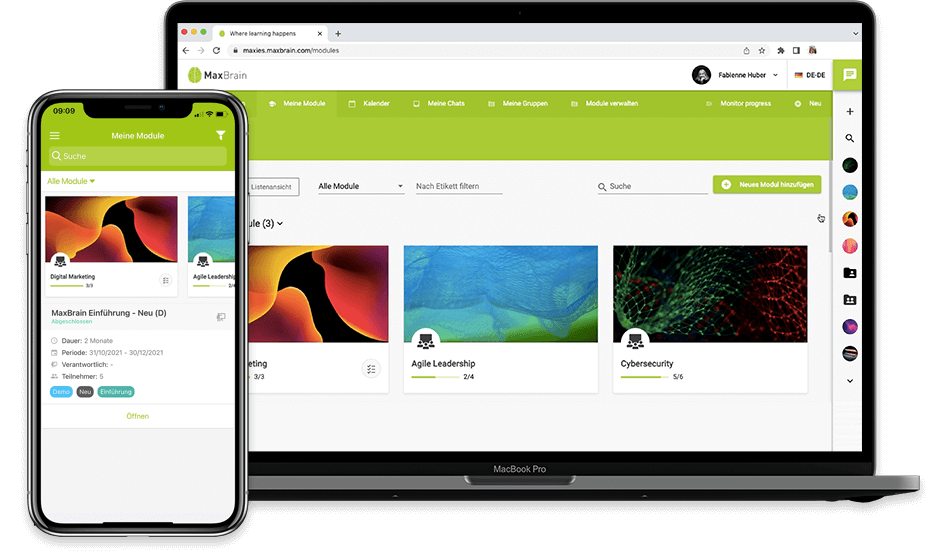











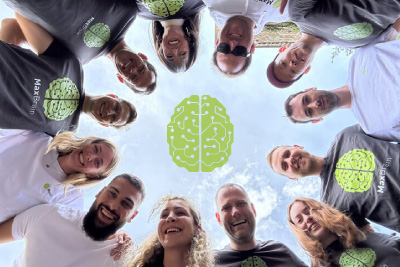

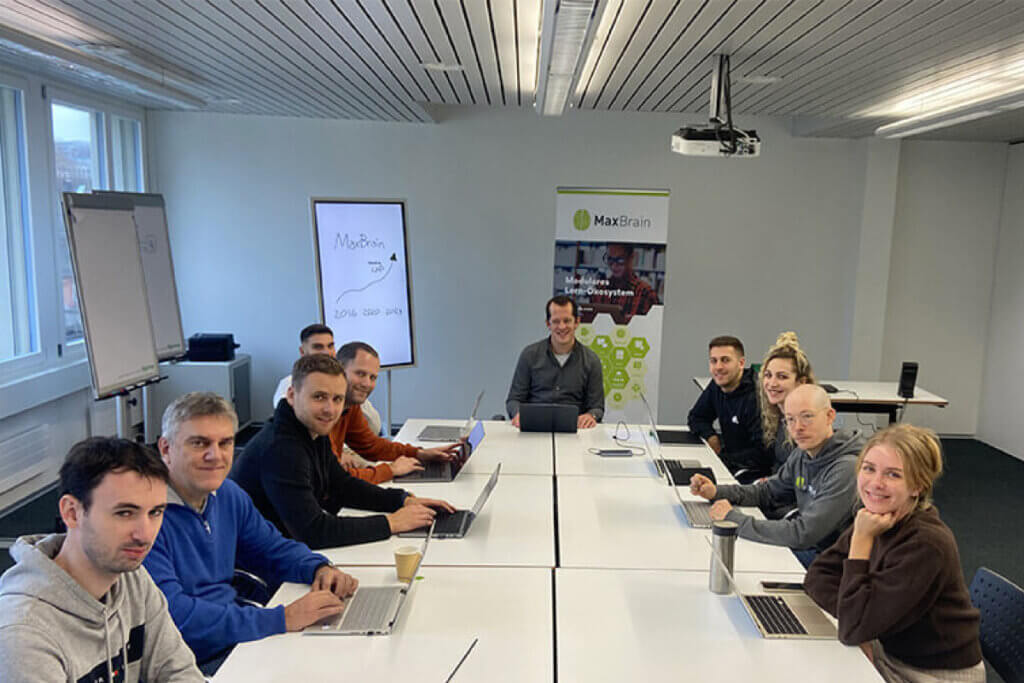

![Productivity: 40 tips on how to achieve 10x more per working day [Hacks]](https://www.maxbrain.com/wp-content/uploads/2022/08/produktivitaet-steigern-40-Tipps-mehr-erreichen-gleiche-Zeit.jpg)
